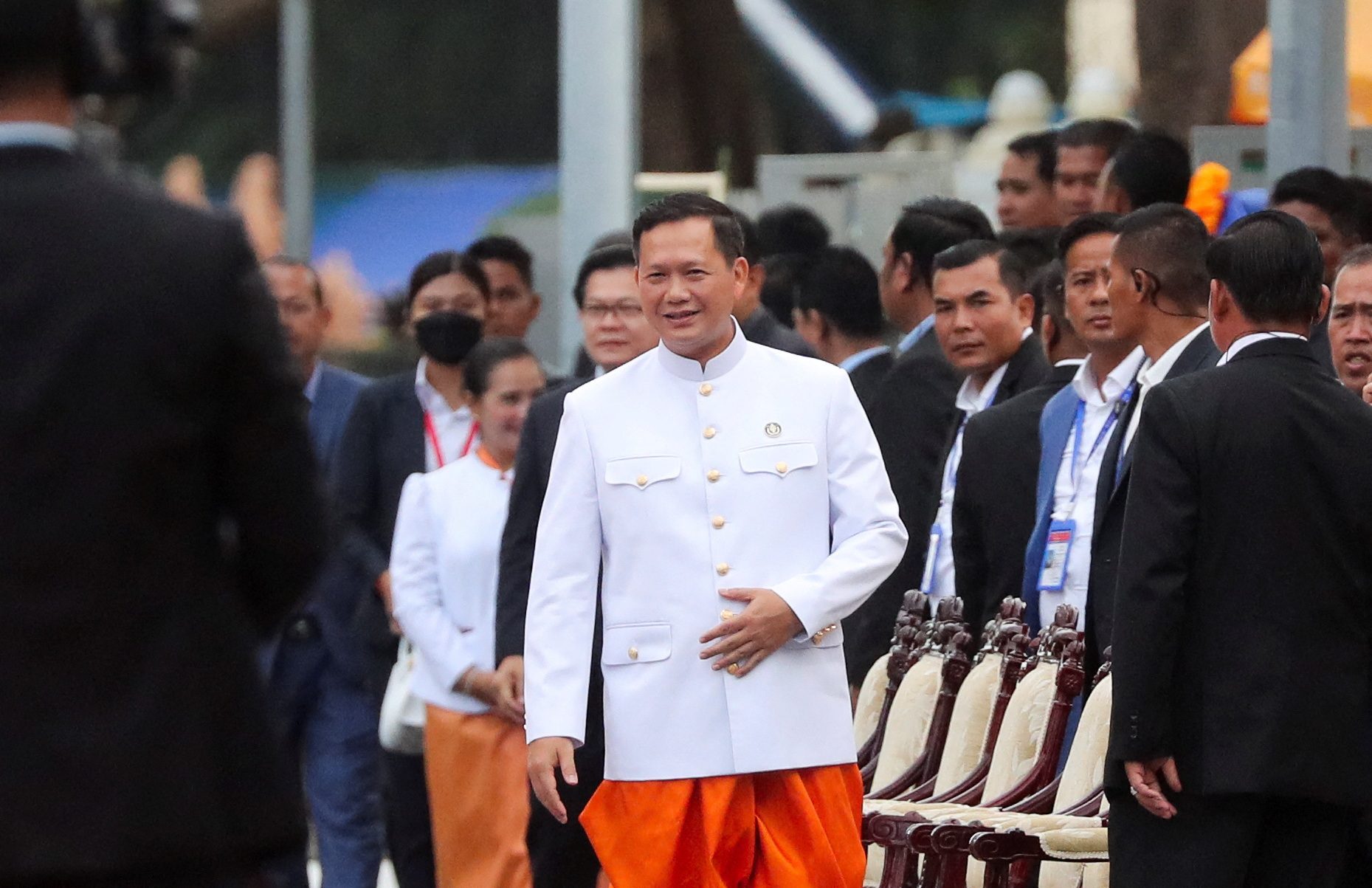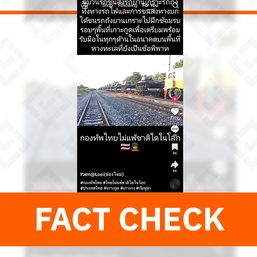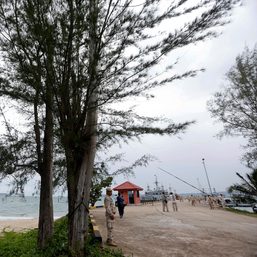SUMMARY
This is AI generated summarization, which may have errors. For context, always refer to the full article.

Cambodia’s newly elected national assembly on Tuesday, August 22, endorsed Hun Manet as the country’s new prime minister, ending the nearly four-decade rule of his father Hun Sen.
Will Hun Manet continue his father’s strongman style of leadership or offer Cambodia democratic reforms and improve ties with the West?
What is Hun Manet’s background?
The eldest of Hun Sen’s five children, Hun Manet was born in 1977 in rural Cambodia. His father said his son was born from a spirit that emerged from a banyan tree in a flash of light.
Hun Manet is married to Pich Chanmony, the daughter of a prominent Cambodian politician and has three children.
Unlike his father, who had no formal schooling, Hun Manet had a privileged education in which he earned a masters degree from New York University and a doctorate from Britain’s Bristol University, both in economics.
What experience does he have?
A graduate of the West Point military academy in the United States, Hun Manet, 45, has risen quickly through the ranks of Cambodia’s armed forces, leading a counter-terrorism team and serving as deputy chief of his father’s bodyguard unit, as well as army chief and deputy military commander.
On the political front, he led the youth wing of the ruling Cambodian People’s Party (CPP) and a member of its standing committee – incremental moves that raised his profile among younger generations.
In late 2021, Hun Sen declared Hun Manet his anointed successor and he was later endorsed by the CPP as “future prime minister.” He was a candidate in an election last month that was widely dismissed as flawed due to the absence of any meaningful opposition to CPP.
What has been Hun Sen’s succession strategy?
After keeping at bay internal and external challenges during his 38 years in power, Hun Sen has ensured his son had unrivaled education and military training, a move political analysts say was to ensure the succession was legitimate among the public, CPP and the country’s elite, and not seen only as nepotism.
Undeterred by Western criticism, Hun Sen has orchestrated a years-long crackdown on his rivals, with scores arrested or jailed in absentia, effectively eliminating his opposition and clearing the path for a smooth succession.
Hun Sen intends to play an active political role for at least a decade, likely aimed at insulating his son from internal challenges to allow him to build his own power base. The former premier plans to become president of the upper house Senate.
What kind of leader would Hun Manet be?
Little is known about Hun Manet’s vision for Cambodia. He has kept a low international profile and has rarely given interviews.
Many public appearances in recent years were restricted to meet-and-greets, posing for selfies with supporters and waving and smiling before crowds.
Some remarks during election campaigning were similar to the vitriol of his father, including calling overseas-based opponents “extremists.”
Will he rule differently?
Major powers will be watching closely for signs of whether Hun Manet will maintain the authoritarian status quo or pursue greater liberalisation and a more Western style of democracy.
Democratic reforms are unlikely anytime soon and might require him to relinquish some of CPP’s control over key independent institutions, and reopen political space to opponents and trade unions.
Such moves could expose his government to unfamiliar public scrutiny and risk upending patronage networks and a balance of power that Hun Sen had successfully managed for years.
Hun Manet declined to answer a question from a reporter during the election on whether he would rule differently to his father. In his remarks after becoming premier, he promised to improve the economy, rule of law and social justice, as well as develop human resources and infrastructure, fight climate change and boost wages for factory workers and civil servants.
What about his international profile?
Foreign powers will be looking for clues as to whether his experiences living in Britain and the United States might lead to improvements in Cambodia’s testy ties with the West, or an effort to reduce its economic dependence and political reliance on China.
The president of the US-ASEAN Business Council earlier this month told Reuters the body is hoping to host Hun Manet soon in New York, noting he was “a different person” to his father. – Rappler.com
Add a comment
How does this make you feel?





There are no comments yet. Add your comment to start the conversation.